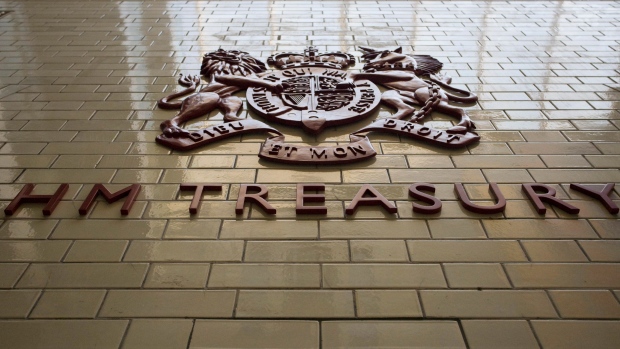May 31, 2022
UK Moves to Boost Stablecoin Protections After Terra Collapse
, Bloomberg News

(Bloomberg) --
The UK government proposed additional safeguards to protect against the potential collapse of stablecoins, weeks after the implosion of one such instrument rocked cryptoasset markets.
The government published a consultation paper on Tuesday that recommended amending existing legislation to address such risks, including giving the Bank of England additional powers to oversee the administration of failed stablecoin issuers of “systemic importance.”
The proposal would broaden the UK’s existing plans to regulate stablecoins to take into account this month’s collapse of Terra, the stablecoin ecosystem whose failure wiped more than $40 billion off the value of its two main tokens. That event sparked renewed efforts by regulators around the world to ensure that stablecoins, whose values are pegged to an asset like the US dollar, don’t endanger financial stability.
“Since the initial commitment to regulate certain types of stablecoins, events in cryptoasset markets have further highlighted the need for appropriate regulation to help mitigate consumer, market integrity and financial stability risks,” the Treasury said in its proposal, which will be considered by Parliament when time allows.
The UK’s Financial Conduct Authority plans to discuss Terra’s failure with the Treasury in coming months, Bloomberg reported earlier. The government’s initial proposal for stablecoin regulation was announced in April, just before Terra’s collapse.
Read more: Terra Hasn’t Killed Crypto, But It Was a Narrow Escape
Under the proposal, the UK would amend its Financial Market Infrastructure Special Administration Regime, or FMI SAR, to include risks posed by possible failures of stablecoin firms that are not banks. The Treasury plans to require that FMI SAR becomes the general default framework for dealing with failed stablecoin projects, and to tweak it so that it can adequately address any risks to financial stability.
This means stablecoin projects could access bespoke insolvency arrangements if their collapse is judged to impact financial stability. The BOE would direct administrators to ensure that the continuity of a failed stablecoin issuer takes priority over the interests of creditors.
The BOE would have to consult with the FCA before it seeks special administration for stablecoin firms. Treasury proposals in April had already recommended that stablecoin issuers that pose systemic risks would be required to operate under the BOE’s supervision, while smaller projects would sit under the FCA’s purview.
“Further work will be required to consider whether it would be appropriate to put in place a bespoke legal framework for the failure of such firms and, if so, its design,” the Treasury added, though its focus remains on making sure existing laws can be applied, too.
The Treasury will accept feedback on the consultation until Aug. 2.
©2022 Bloomberg L.P.





